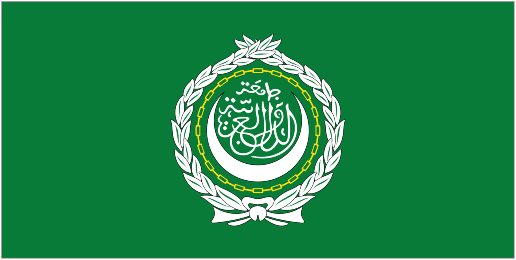
Here is a list of the member states of the Arab League, along with their heads of state and their current system of government:
Algeria, President Abdel Aziz Bouteflika, since 1999 (Parliament with rigged elections, near dictatorship)
Bahrain, King Hamad bin Isa al-Khalifa, since 1999 (Constitutional Monarchy, a Sunni King ruling a majority Shia population currently in the early stages of revolution, near dictatorship)
Comoros, President Ahmed, Abdullah Mohamed Sambi, since 2006 (Federal Republic with one peaceful transition of power)
Djibouti, President Ismail Omar Guelleh, since 1999 (One Party Republic, read: DICTATORSHIP)
Egypt, transitional since the 18 Day Revolution (Former Dictatorship)
Iraq, President Talabani since 2005, PM al-Maliki since 2006 (US-Sponsored Parliamentary Democracy, Former Dictatorship)
Jordan, King Abdullah II since 1999 (Hashemite King ruling over a majority Palestinian population, somewhat elected Parliament, all major positions - PM, FM - appointed by royal decree, near dictatorship)
Kuwait, Emir Sabah el-Ahmad el-Jabar as-Sabah, since 2006 (Constitutional Emirate with supreme authority resting with the Emir, DICTATORSHIP)
Lebanon, President Suleiman since 2008 (sectarian Democracy)
Libya, Colonel Muammar Gadhafi since 1969 (DICTATORSHIP in the late stages of revolution)
Mauritania, President Mohamed Ould Mohamed Laghdaf, since 2009 (Islamic Republic following military coup in 2008, DICTATORSHIP)
Morocco, King Mohammed VI since 1999 (Constitutional Monarchy with wide reaching powers resting with the King, near dictatorship)
Oman, Sultan Qaboos bin Said al-Said, since 1970 (Islamic Absolute Sultanate, DICTATORSHIP)
Palestine (the Palestinian Authority), President Abbas since 2005, PM Salam Fayyad since 1007 (Currently serving a term that expired in January 2009, Hamas PM Ismail Haniyeh rules Gaza since 2006)
Qatar, Emir Hamad bin-Khalifa al-Thani, since 1995 (Absolute Monarchy, DICTATORSHIP)
Saudi, King Abdullah, since 2005 (Absolute Islamic Monarchy, DICTATORSHIP)
Somalia, President Sharif Ahmed, since 2009 (Warlords/Anarchy)
Sudan, President Bashir, since 1993 (Currently under investigation by the ICC for genocide, DICTATORSHIP)
Syria, President Bashar al-Assad, since 2000 (Allawi "President" ruling over a majority Sunni population, DICTATORSHIP)
Tunisia, transitional since the Jasmine Revolution
UAE, President Emir Khalifa bin Zayed al-Nahyan, since 2004 (Federation of Absolute Monarchies with an (unofficially) inherited presidency, DICTATORSHIP)
Yemen, President Ali Abdullah Saleh, since 1990 of united Yemen, 1978-1990 of North Yemen (DICTATORSHIP, currently in the early stages of revolution)
Of the 22 member states of the Arab League, 15 are dictatorships (11 outright, 4 near), 1 is in a state of anarchy and fought over by warlords, 1 is not yet a state and is already divided into two questionably-democratic entities, 3 are somewhat democratic and 2 have just been overthrown by revolutionaries.
That means that this moment of silence on behalf of the martyrs of the Tunisian and Egyptian Revolutions against dictatorship was held primarily by the emissaries of other dictators.
If you can think of a definition that fits this situation better than Mashriq Madness I'd love to hear it!

Salaam Fayaad, the oldest person in history, real or fictional, also has the destinction of being the longest continuously serving leader of a country that has endured for a shorter time than only the empires of Rome and ancient Egypt.
ReplyDeleteWould you care to elaborate on that because I am thoroughly confused by that statement.
ReplyDelete